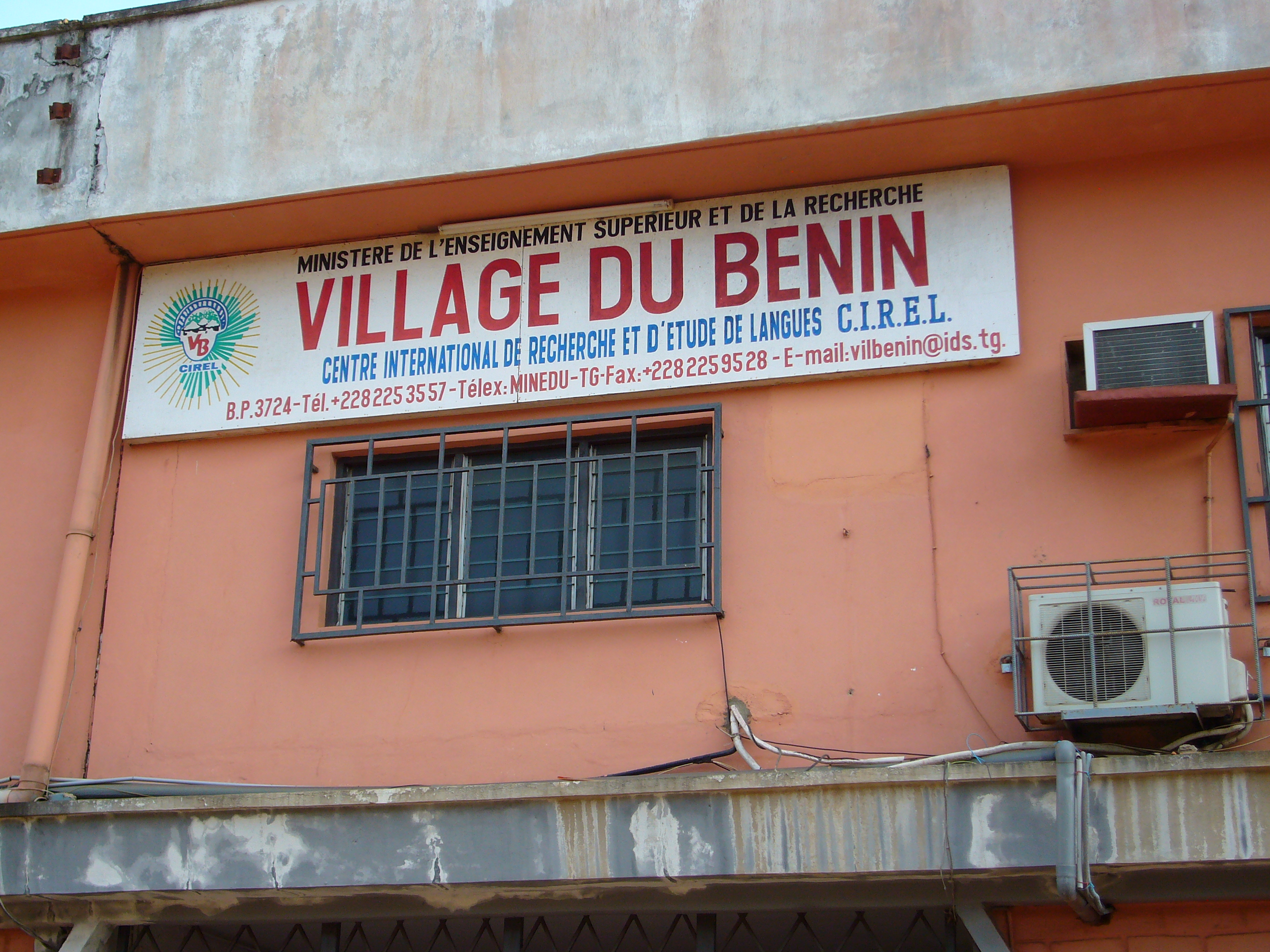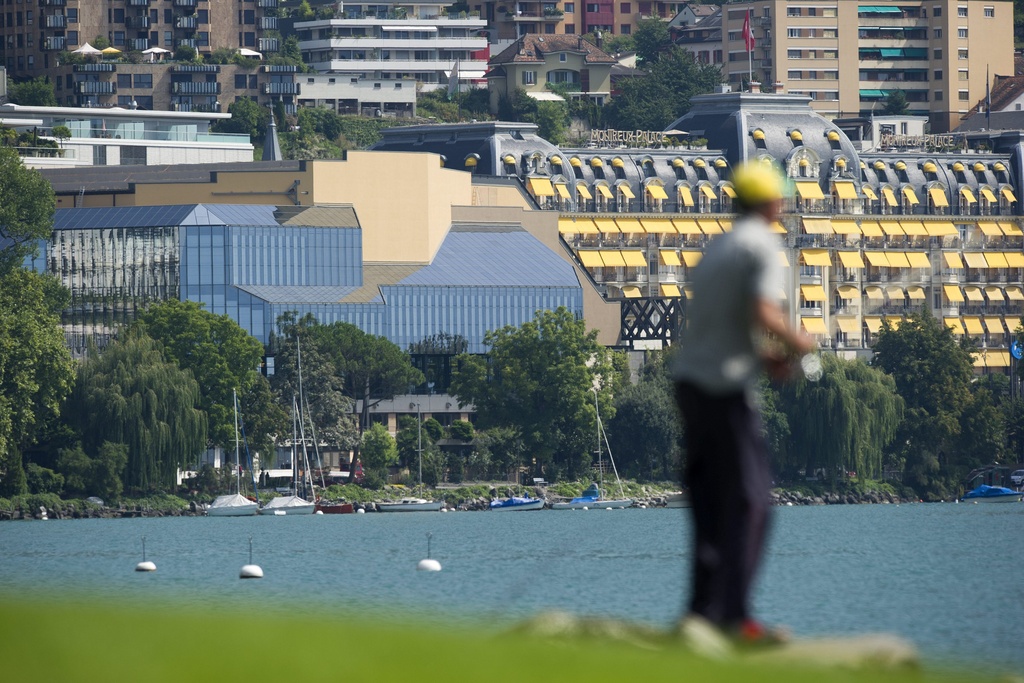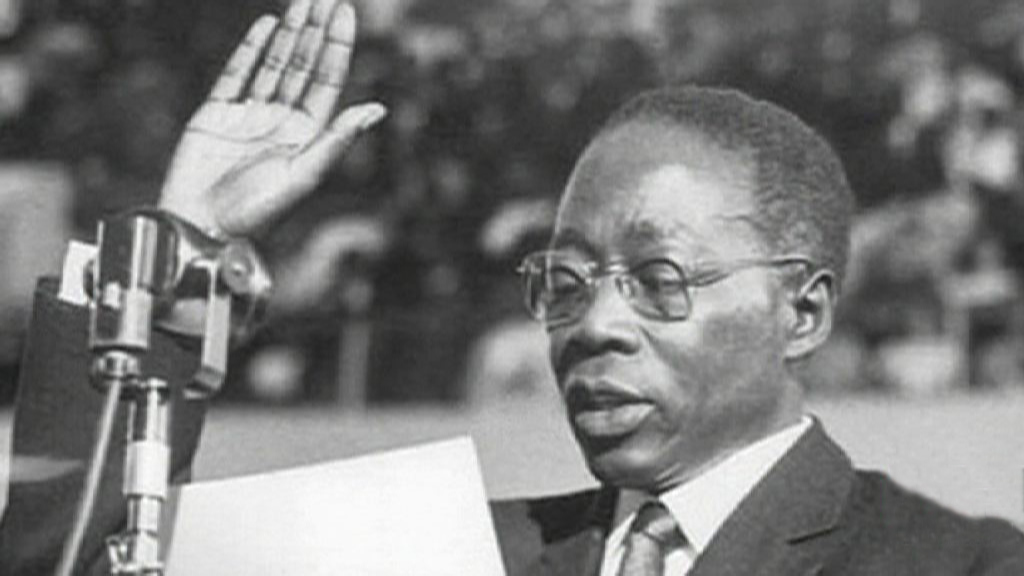French seduces English-speaking Africans

The number of French-speakers may be on the decline in Europe as learning English and Spanish grows in popularity, but Africa is experiencing the opposite trend.
swissinfo.ch’s Pierre-François Besson recently visited the Benin Village language school in Lomé, Togo, to find out why an increasing number of English-speakers from West Africa go there every year to learn French.
According to the International Organisation of the Francophonie (IOF), there are around 220 million French-speakers worldwide.
Although the number is falling in Europe – down to 12 per cent of all French-speakers by 2050 – the overall figure is up due to demographic growth in Africa – where half of all French-speakers live. The total number speaking the language of Molière has risen by 20 million since 2007.
In French-speaking African countries French is used at school, in offices and for international business. This is particularly the case for Togo, where some two million people speak French out of a population of 6.6 million.
But French is also becoming more popular in English-speaking African states.
Since 2008 French has become the second language taught at school in Nigeria, where the official language is English alongside 510 other local languages. Africa’s most populous country is apparently in the process of joining the IOF.
Ghana, where the official language is also English alongside 47 local languages, is already an IOF observer country and places more and more importance on learning French.
“In West Africa, where there are several French-speaking states, countries like Ghana and Nigeria need French to integrate. There is a huge demand to learn French, particularly among the elite,” explained Etienne Alingue, the outgoing head of IOF’s West Africa office.
Promoting the French language is one of the main cooperation activities of the IOF, alongside peace and sustainable development. The organisation is active at several levels in the region, in particular through the teaching of French as a foreign language at various training centres.
Local pride
“The aim is to contribute towards spreading and strengthening the use of French, a language of international communication and a regional integration tool,” commented Tharcisse Urayeneza, the new director of the West Africa office. The medium-term goal is to create a regional skills base.
One of the three main centres of the current network is based on the University of Lomé campus in Togo. In the corner of a large and slightly overgrown green area stands a weathered pink building – the International Benin Village Language Research and Study Centre.
“In the Gulf of Benin everyone is proud of the Benin Village,” said the director, Mawuena Adjrankou-Glokpo.
Created in 1968, the centre started out teaching French to non-French teachers. But it has since branched out into private individual French lessons, university classes, business French and training for French teachers.
Can’t meet demand
The students, who stay here for up to nine months, come from neighbouring countries and from as far away as China, India, Russia and the United States. Accommodation for 270 people is provided on campus and in three nearby residences. But a new 200-bed block is also being built to meet demand.
“Priests, economists, bankers and the army use the Benin Village,” said the director, who heads a team of 100 people, including 40 teachers.
Almost two-thirds of the 1,300 students who visit the centre each year are language students from universities in Ghana and Nigeria, who come to spend their year abroad in a French-speaking country.
“Since these two countries decided to make French their second working language, we are not able to keep up with the demand,” said Adjrankou-Glokpo.
The students will become French teachers or even diplomats in their countries, he added.
But not Ronkie. The young Nigerian sitting in a dark classroom to avoid the sweltering October heat is studying French “to become an international person”.
“I would also like to learn Chinese. My aim is to become a journalist in the US.”
Luxury
Thierry Kalessou, a teacher of French as a foreign language, outlined the challenges.
“We use a communicative action-based learning approach,” he explained. “In three months the person should be able to hold a conversation.”
But behind the teaching jargon is the hard reality. The students’ levels vary enormously and infrastructure and materials are lacking, he noted.
“But to come to Togo is a luxury for these students. They are very motivated – you can tell. They make the effort to speak French and it pays off for them,” said Kalessou.
The IOF, which was created in 1970, comprises 70 member states and governments (56 members and 14 observers), where French is spoken either as a main or secondary language.
Its mission is to encourage solidarity between its members, who together represent over one-third of the United Nations’ member states and account for a population of over 870 million people, including 220 million French speakers.
The IOF organises cooperation activities for French-speaking populations to promote the French language, peace and sustainable development. It has concluded 33 cooperation agreements with international and regional organisations.
The IOF has its head office in Paris as well as four permanent representations in Addis Ababa, Brussels, New York and in Geneva. The current secretary-general is Abdou Diouf.
Summit meetings are held every two years to develop strategies and goals.
Switzerland has participated in summits since 1989 and became a full IOF member in 1995. It will chair the IOF over the next two years.
The IOF’s annual budget stands at SFr120 million ($124 million). Switzerland is the fourth-biggest IOF donor (SFr6.4 million annually) after France, Canada and Belgium.
Some 40 heads of state, 3,000 delegates and 600 journalists are expected to attend the summit in Montreux from October 22-24, 2010.
At the end of the meeting a declaration will be adopted summarising the issues agreed upon and the new IOF secretary-general will be elected.
From October 19-24 Montreux will host public conferences on the themes discussed by delegates. Lausanne is also hosting a meeting of the International Association of French-speaking Mayors.
A “Francophonie Village” has been built in town to generate local interest. The IOF, its aims and current issues affecting French-speakers were presented at summer festivals in Switzerland and debated at universities in French-speaking Switzerland.
Parliament approved a budget of SFr30 million ($31 million) for the event and 6,500 troops have been deployed to guarantee security.
French President Nicolas Sarkozy and Canadian Prime Minister Stephen Harper will be among those in attendance, alongside Swiss President Doris Leuthard, Foreign Minister Micheline Calmy-Rey and Interior Minister Didier Burkhalter.
(translated from French by Simon Bradley)

In compliance with the JTI standards
More: SWI swissinfo.ch certified by the Journalism Trust Initiative




You can find an overview of ongoing debates with our journalists here. Please join us!
If you want to start a conversation about a topic raised in this article or want to report factual errors, email us at english@swissinfo.ch.